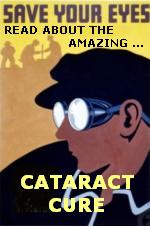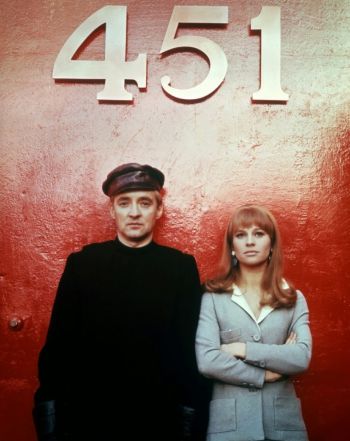|
Home
About
Us
Bookstore
Links
Blog
Archive
Books
Cinema
Fine Arts
Horror
Media & Copyright
Music
Public Square
Television
Theater
War & Peace
Affilates
Horror Film Aesthetics
Horror Film Festivals
Horror Film Reviews
Tabloid Witch Awards
Weekly Universe
Archives






|
'SENSITIVITY READERS' CENSOR POLITICALLY INCORRECT BOOKS
by Thomas M. Sipos, managing editor [February 18, 2017]
 [HollywoodInvestigator.com] In Fahrenheit 451, author Ray Bradbury foresaw that "progressives" (rather than conservatives) would enforce censorship in the United States, beginning with books deemed "insensitive" to minorities. Well, today's publishing culture has caught up with Bradbury's dystopian vision. [HollywoodInvestigator.com] In Fahrenheit 451, author Ray Bradbury foresaw that "progressives" (rather than conservatives) would enforce censorship in the United States, beginning with books deemed "insensitive" to minorities. Well, today's publishing culture has caught up with Bradbury's dystopian vision.
Everdeen Mason of the Washington Post (reprinted in the Chicago Tribune, February 15, 2017) reports:
These days, though, a book may get an additional check from an unusual source: a sensitivity reader, a person who, for a nominal fee, will scan the book for racist, sexist or otherwise offensive content. These readers give feedback based on self-ascribed areas of expertise such as "dealing with terminal illness," "racial dynamics in Muslim communities within families" or "transgender issues."
"The industry recognizes this is a real concern," said Cheryl Klein, a children's and young adult book editor and author of The Magic Words: Writing Great Books for Children and Young Adults. Klein, who works at the publisher Lee & Low, said that she has seen the casual use of specialized readers for many years but that the process has become more standardized and more of a priority, especially in books for young readers.
Sensitivity readers have emerged in a climate -- fueled in part by social media -- in which writers are under increased scrutiny for their portrayals of people from marginalized groups, especially when the author is not a part of that group.
Last year, for instance, J.K. Rowling was strongly criticized by Native American readers and scholars for her portrayal of Navajo traditions in the 2016 story "History of Magic in North America." Young-adult author Keira Drake was forced to revise [my italics] her fantasy novel The Continent after an online uproar over its portrayal of people of color and Native backgrounds. More recently, author Veronica Roth -- of Divergent fame -- came under fire for her new novel, Carve the Mark. In addition to being called racist, the book was criticized for its portrayal of chronic pain in its main character.
Some might argue that "sensitivity readers" are no big deal, because their use is not government imposed (yet), and so it's not really censorship. It's an editorial decision. Some authors quoted in the article even claim to be grateful for the "help" they receive from "sensitivity readers" -- helping these authors to portray their characters "correctly."
"Thank you Comrade Sensitivity Reader, for correcting my errors!"
But how voluntary is that consent? "Progressive" activists are never satisfied. They will increasingly pressure hold-out publishers to hire "sensitivity readers." Publishers, in turn, will increasingly pressure authors to make the corrections "requested" by "sensitivity readers."
As Mason notes:
Lee & Low Books has a companywide policy to use sensitivity readers. Stacy Whitman, publisher and editorial director of Lee & Low's middle-grade imprint Tu Books, said she will even request a sensitivity reader before she chooses to acquire a book to publish [my italics].
"It's important for authors to consider expert reader feedback and figure out how to solve the problems they point out," Whitman said.
In other words, whether an author consents to "solve the problems" complained about by some sensitivity commissar will help determine its chances for publication. This will mean ever less diversity in literature, because weak, cowardly, incompetent, stupid, and evil personality traits will become (even more so than already) reserved for straight, white, Christian, male characters.
Returning to Bradbury's Fahrenheit 451, here's an excerpt from the Fire Chief's speech, explaining how society eventually got around to book-burning:
Now let's take up the minorities in our civilization, shall we? Bigger the population, the more minorities. Don't step on the toes of the dog-lovers, the cat-lovers, doctors, lawyers, merchants, chiefs, Mormons, Baptists, Unitarians, second-generation Chinese, Swedes, Italians, Germans, Texans, Brooklynites, Irishmen, people from Oregon or Mexico. The people in this book, this play, this TV serial are not meant to represent any actual painters, cartographers, mechanics anywhere.
The bigger your market, Montag, the less you handle controversy [my italics], remember that! All the minor minor minorities with their navels to be kept clean. Authors, full of evil thoughts, lock up your typewriters. They did. Magazines became a nice blend of vanilla tapioca. Books, so the damned snobbish critics said, were dishwater. No wonder books stopped selling, the critics said. But the public, knowing what it wanted, spinning happily, let the comic-books survive. And the three-dimensional sex magazines, of course.
There you have it, Montag. It didn't come from the Government down. There was no dictum, no declaration, no censorship, to start with, no! [my italics] Technology, mass exploitation, and minority pressure carried the trick, thank God.
Bradbury didn't get everything right. Publishers don't care about the sensitivities of Mormons or Baptists or Swedes or Germans. Such is our "progressive" culture. Poking fun at non-Christian religions is hate, but bashing Christianity is healthy satire. Nazis are unqualified villains, but Communists are at worst misguided idealists. At best they are the noble victims of McCarthyism. (The sensitivities of the victims of Communism be damned.)
But Bradbury had a great insight. Censorship doesn't start with government dictates. It begins with popular pressure. It begins in the private sector. And the signs are ominous.

|
